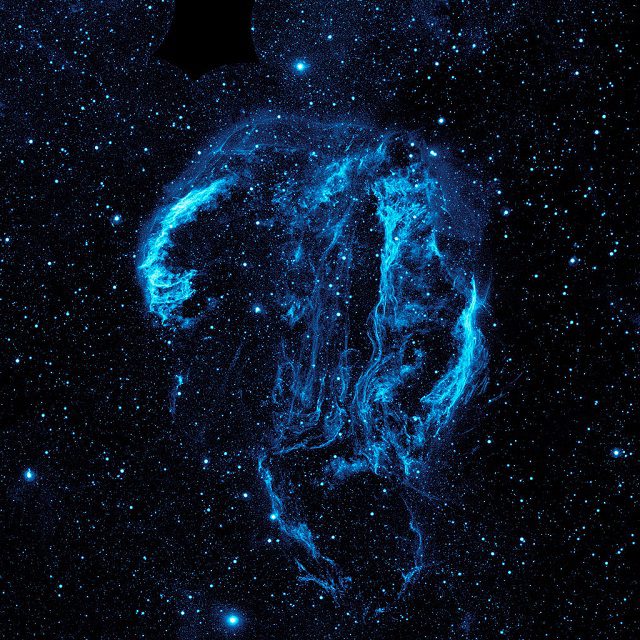
Atheist and anti-theist Bob Seidensticker runs the influential Cross Examined blog. He asked me there, on 8-11-18: “I’ve got 1000+ posts here attacking your worldview. You just going to let that stand? Or could you present a helpful new perspective that I’ve ignored on one or two of those posts?” He also made a general statement on 6-22-17: “In this blog, I’ve responded to many Christian arguments . . . Christians’ arguments are easy to refute.” He added in the combox: “If I’ve misunderstood the Christian position or Christian arguments, point that out. Show me where I’ve mischaracterized them.” I’m always one to oblige people’s wishes, so I decided to do a series of posts in reply.
It’s also been said, “be careful what you wish for.” If Bob responds to this post, and makes me aware of it, his reply will be added to the end along with my counter-reply. If you don’t see that at the end, rest assured that he either hasn’t replied, or didn’t inform me that he did. But don’t hold your breath. On 8-24-18 Bob wrote (after having virtually begged to dialogue with me back in May) that my alleged “disinterest in the truth reflects poorly” on me. What are we to make of his utter “disinterest” in defending his opinions against serious critique, then? Bob’s words will be in blue. To find these posts, word-search “Seidensticker” on my atheist page or in my sidebar search (near the top).
*****
Bob states in his post, “10 Tough Questions for the Atheist to Answer” (11-18-13; rep. 4-22-17):
1. How Did the Universe Come Into Being?
Our universe had a beginning, but what caused it? Why is there something instead of nothing?
I don’t know what caused the universe. I don’t even know if asking about a cause (which implies an action through time) even makes sense before time existed. (And I say “I don’t know” simply because I’m parroting the consensus view of physics. If that changes, so will my opinion.)
But there’s nothing embarrassing about pointing out where we don’t know things. Science has plenty of unanswered questions, and highlighting them shows where work needs to be done. It’s not like we’ve ever learned anything new about nature through holy books or divine revelation.
That science doesn’t know something doesn’t mean that Christians do. They still must deliver evidence for the claim “God did it.” Believing by faith won’t do.
I commend him for being honest. I recently asked two other atheists (Anthrotheist and Grimlock) the same thing, and they were both honest enough to give the same answer: “I don’t know.” It’s good to know the limit of our knowledge and to not try to hide it. Many people have a hard time doing that. I’ve never understood why. Anyone who thinks at all ought to quickly recognize how much they don’t know. And it ought to cause us to be less triumphant about lack of comprehensive knowledge in opposing views.
Bob’s answer supports, I think, an argument I have used for years: “the Christian point of view regarding the beginning of the universe is every bit as plausible, and requires no more faith [defined as “acceptance of unproven axioms”] than the atheist view.” To illustrate that, I shall closely follow Bob’s words (with a few necessary changes) and put them into the mouth of a Christian, to show that the two scenarios both involve faith and lack of in-depth explanations:
1. How Did the Universe Come Into Being?
Our universe had a beginning, but what caused it? Why is there something instead of nothing?
God. I don’t understand how He could exist for eternity (never not exist). I don’t even know if asking about a “cause” for God even makes sense. And I say “I don’t know” because it is the consensus view of theology and [theistic] philosophy. If that changes, so will my opinion.
But there’s nothing embarrassing about pointing out where we don’t know things. Theology and the Bible present or deal with plenty of unanswered questions, and highlighting them shows where work needs to be done. It’s not like we’ve never learned anything new about God through holy books or divine revelation.
That theology doesn’t know something doesn’t mean that atheists and scientists do. They still must deliver evidence for the claim “chance / matter did it” (rather than God, or a “guiding God” as it were). Merely believing for no good reason — without hard scientific evidence won’t do.
Note also that quantum events may not have causes, and the Big Bang was a quantum event. There’s no reason to demand a Big Banger, some supernatural First Cause.
Note also that Christian theology holds that God Himself is not caused, but that the Big Bang [posited through scientific observation, by a Catholic priest] was caused by Him. There’s just as much reason to rationally believe in a Big Banger as supernatural First Cause, as there is to believe that something came from nothing, and was caused by who knows what? The latter is an appeal to ignorance; the former, to rationally solid theology backed up by much serious philosophy.
The Christian might imagine frustrated atheists lamenting how the appearance of deliberate fine tuning makes a deity unavoidable and then hitting on the crazy idea of bazillions of universes so that by sheer luck at least one of them will be tuned to allow life. But that’s not how it happened. A multiverse is predicted by well-established physics—both string theory and inflation.
Note also that events and objects aren’t unique in physics. There’s more than one photon, more than one electron, more than one star, more than one object influenced by gravity, and so on. Why must we be limited to one Big Bang?
Well, let’s get away from computer technicians like Bob for a moment and hear from one of the originators of the multiverse and “cyclic theory” notions: theoretical physicist Paul Steinhardt, who is the Albert Einstein Professor in Science and Director of the Center for Theoretical Science at Princeton University:
[M]y concerns really grew when I discovered that, due to quantum fluctuation effects, inflation is generically eternal and (as others soon emphasized) this would lead to a multiverse. Inflation was introduced to produce a universe that looks smooth and flat everywhere and that has features everywhere that agree with what we observe. Instead, it turns out that, due to quantum effects, inflation produces a multitude of patches (universes) that span every physically conceivable outcome (flat and curved, smooth and not smooth, isotropic and not isotropic, scale-invariant spectra and not, etc.). Our observable universe would be just one possibility out of a continuous spectrum of outcomes. So, we have not explained any feature of the universe by introducing inflation after all. We have just shifted the problem of the original big bang model (how can we explain our simple universe when there is a nearly infinite variety of possibilities that could emerge from the big bang?) to the inflationary model (how can we explain our simple universe when there is a nearly infinite variety of possibilities could emerge in a multiverse?). . . .
To me, the accidental universe idea is scientifically meaningless because it explains nothing and predicts nothing. Also, it misses the most salient fact we have learned about large-scale structure of the universe: its extraordinary simplicity when averaged over large scales. In order to explain the one simple universe we can see, the inflationary multiverse and accidental universe hypotheses posit an infinite variety of universes with arbitrary amounts of complexity that we cannot see. Variations on the accidental universe, such as those employing the anthropic principle, do nothing to help the situation.
Scientific ideas should be simple, explanatory, predictive. The inflationary multiverse as currently understood appears to have none of those properties.
These concerns and more, and the fact that we have made no progress in 30 years in addressing them, are what have made me skeptical about the inflationary picture. . . .
Imagine a scientific theory that was designed to explain and predict but ends up allowing literally any conceivable possibility without any rule about what is more likely. What good is it? It rules out nothing and can never be put to a real test. . . .
My concern was that the multiverse is a ‘theory of anything’, a proposal that allows all possible cosmological outcomes (smooth or not smooth, curved or flat, etc.) and, consequently, is not subject to empirical tests. Some claim that superstring theory allows exponentially many (or perhaps infinitely many) possibilities for the fundamental laws (masses of particles, types of forces, etc.) and that there is no guiding principle to determine which set of physical laws is more probable. . . .
[Q: Are you religious? Can you be a physicist and also believe in God?]
I never answer the first question because I consider religion to be a private matter. My scientific views stand on their own and I would like them to be evaluated independent of my private views about religion. In answer to your second question, it is a demonstrated fact that successful physicists can believe in God. (“Physicist Slams Cosmic Theory He Helped Conceive,” John Horgan [interviewer], Scientific American, 12-1-14)
And how designed does the universe look? The vast majority of the universe is hostile to any kind of life that we’re familiar with. Does creating hundreds of billions of galaxies sound like what a cosmic designer would do if life on a single lonely planet was the goal?
Yeah, why not? We sit here on earth and speculate as to what God (if He exists) should or shouldn’t do, but we have no basis or frame of reference in which to make such judgments. If God wanted to make the universe exactly as we observe it (not yet having discovered life anywhere else), who are we to say that it “doesn’t make sense”? It’s simply arrogant and self-importance exaggerated to the billionth degree.
The mere proposition of “billions of galaxies and planets but just one with life” is no more implausible (assuming a Creator God Who willed it) than the evolutionary “billions of genetic mutations but just one that will bring about a new adaptation or anatomical structure.” If we believe (if we are materialists) that, essentially, blind chance can bring about the constructive mutation, then why can’t we believe that an Intelligent Designer may operate in the same way as regards the entire universe (i.e., one small exception in an exponentially, almost incomprehensibly larger sea of non-exceptions)? One is no less plausible than the other.
The theist and the Christian look at the universe, with the only known life in it being life on earth, including ourselves, and say, “Look how special and unique we are on earth: especially human beings! That suggests a Creator God.” The atheist looks at it and concludes, “it makes no sense for a supposed God to allow life on just one planet and in one galaxy among billions.” It’s all in one’s perspective.
But I don’t see that Bob’s complaint / speculation here is immediately apparent — let alone compelling — at all. It carries no inherent logical or plausible force, and is based on nothing but his own empty (and biased atheist) speculation that this isn’t the way it “should” be. Where does he get the notion of “should” in the first place? That is the relevant question.
The origin of life is called abiogenesis. Though science has lots of ideas, it doesn’t have a good theory. Nevertheless, science not having an answer gives nothing to the Christian side of the question.
That’s correct. But by the same token, if science is ignorant and has no explanation, we are as epistemologically justified to simply believe that God was the causal agent of life coming into existence, and that it is yet another example of science offering no plausible — purely natural — explanations of the origins of things (the universe and life and consciousness) because matter alone is woefully insufficient to understand or explain any of those things. Assuming the Christian / theistic hypothesis for the sake of argument, the state of current scientific [non-]knowledge is perfectly in accord with what we would expect.
Even if science at length does give us a good explanation of a naturalistic origin of life, this would no more disprove God than the Big Bang does, or evolutionary development of life forms does. You can’t disprove a spirit by means of theories of matter and physics. The sooner materialist scientists get this obvious fact, the better off (and far less frustrated) they and all of us will be. Far better to hold Dr. Steinhardt’s view (“it is a demonstrated fact that successful physicists can believe in God”).
Their argument then becomes “Science has unanswered questions; therefore God.”
This (the old and tired “god of the gaps” canard) is not what I have argued above, or have ever argued, in my now 37 years of doing Christian apologetics. My argument is, rather: “our theological speculation, held in faith, but backed by reason and centuries of theistic philosophy, is at least as plausible and intellectually respectable to hold as the freely admitted non-answers in certain areas of science.”
The materialist-type atheist can always (I suppose) stomp his feet and angrily proclaim, “there is no such thing as spirit! Everything is material!” But of course that is merely what we call “blind faith” or irrational dogmatism” and no rational argument at all. We prefer a reasonable faith to irrational dogmatism and scientism (science ludicrously elevated to a virtual religion and exclusive means of knowledge).
***
Related reading:
My Science & Philosophy web page
My book about science: Science and Christianity: Close Partners or Mortal Enemies? [as low as $2.99 as an e-book]
***
Photo credit: Cygnus Loop nebula: NASA (3-22-12). Wispy tendrils of hot dust and gas glow brightly in this ultraviolet image, taken by NASA’s Galaxy Evolution Explorer. The nebula lies about 1,500 light-years away, and is a supernova remnant, left over from a massive stellar explosion that occurred between 5,000 to 8,000 years ago. The Cygnus Loop extends over three times the size of the full moon in the night sky, and is tucked next to one of the “swan’s wings” in the constellation of Cygnus. The filaments of gas and dust visible here in ultraviolet light were heated by the shockwave from the supernova, which is still spreading outward from the original explosion. The original supernova would have been bright enough to be seen clearly from Earth with the naked eye. [public domain / Wikimedia Commons]
***
















